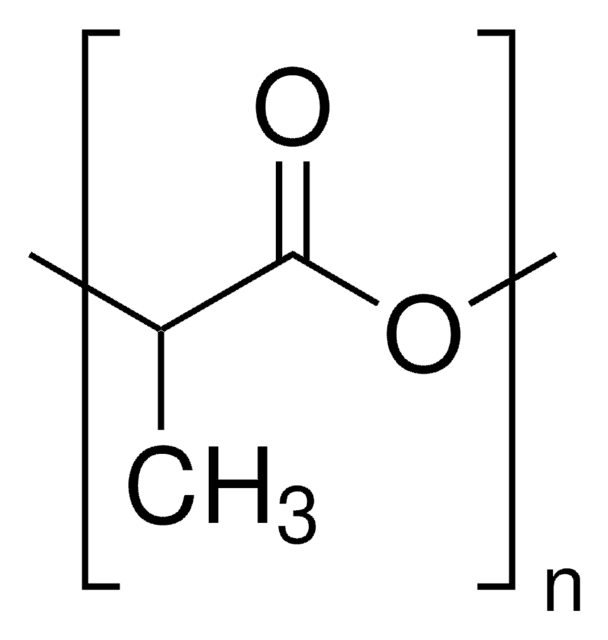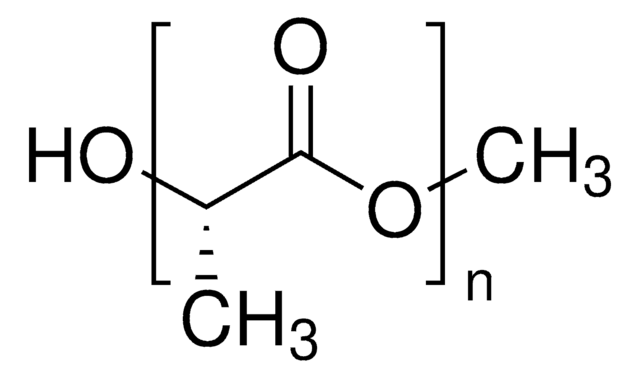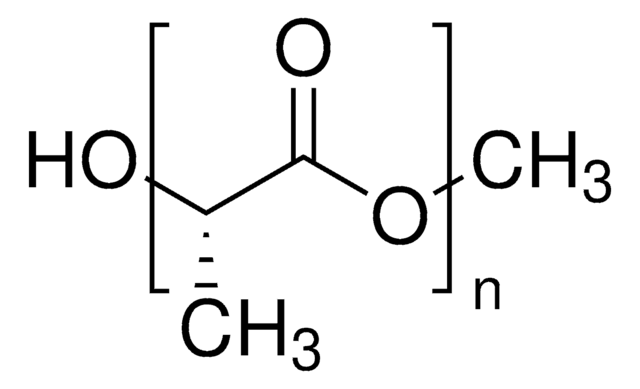93578
Poly(L-lactide)
viscosity ~1.0 dL/g, 0.1 % (w/v) in chloroform(25 °C)
Synonym(s):
L-Lactide polymer, PLA, Poly(L-Lactic acid)
About This Item
Recommended Products
description
ester terminated
Quality Level
form
solid
mol wt
Mn 59,000
Mw 101,000
degradation timeframe
>3 years
impurities
<0.5% water
viscosity
~1.0 dL/g, 0.1 % (w/v) in chloroform(25 °C)
Mw/Mn
<1.8
Looking for similar products? Visit Product Comparison Guide
Application
Other Notes
Storage Class Code
11 - Combustible Solids
WGK
WGK 3
Flash Point(F)
Not applicable
Flash Point(C)
Not applicable
Personal Protective Equipment
Choose from one of the most recent versions:
Already Own This Product?
Find documentation for the products that you have recently purchased in the Document Library.
Customers Also Viewed
Articles
Interest in utilizing biodegradable polymers for biomedical applications has grown since the 1960s.
Aliphatic polyesters such as polylactide, poly(lactide-co-glycolide) and polycaprolactone, as well as their copolymers, represent a diverse family of synthetic biodegradable polymers that have been widely explored for medical uses and are commercially available.
Our team of scientists has experience in all areas of research including Life Science, Material Science, Chemical Synthesis, Chromatography, Analytical and many others.
Contact Technical Service








